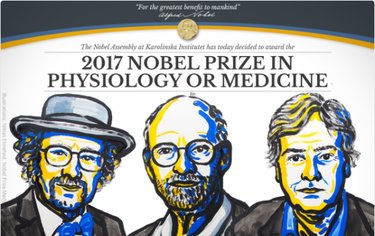The Nobel Assembly at Karolinska Institutet in Sweden announced today that it has decided to award the 2017 Nobel Prize in Physiology or Medicine jointly to Jeffrey C. Hall, Michael Rosbash and Michael W. Young for their discoveries of molecular mechanisms controlling the circadian rhythm.
According to the announcement, their work studying fruit flies enabled us “to peek inside our biological clock and elucidate its inner workings.” Hall and Rosbash worked in close collaboration at Brandeis University in Boston, and Young conducted his work at the Rockefeller University in New York.
“The recognition of three circadian biologists as the 2017 Nobel Prize laureates is not only a testament to their lifelong work, but it also reflects the recognition that sleep and circadian rhythms play important roles in daily biological functions as well as mechanisms of disease,” said American Academy of Sleep Medicine President Dr. Ilene Rosen. “Research such as that of Drs. Hall, Rosbash and Young has paved the way for future scientific directions that will include the incorporation of circadian neurobiology into personalized approaches to health and wellness.”
The Nobel Assembly, consisting of 50 professors at Karolinska Institutet, awards the Nobel Prize in Physiology or Medicine. Its Nobel Committee evaluates the nominations. Since 1901 the Nobel Prize has been awarded to scientists who have made the most important discoveries for the benefit of mankind.







